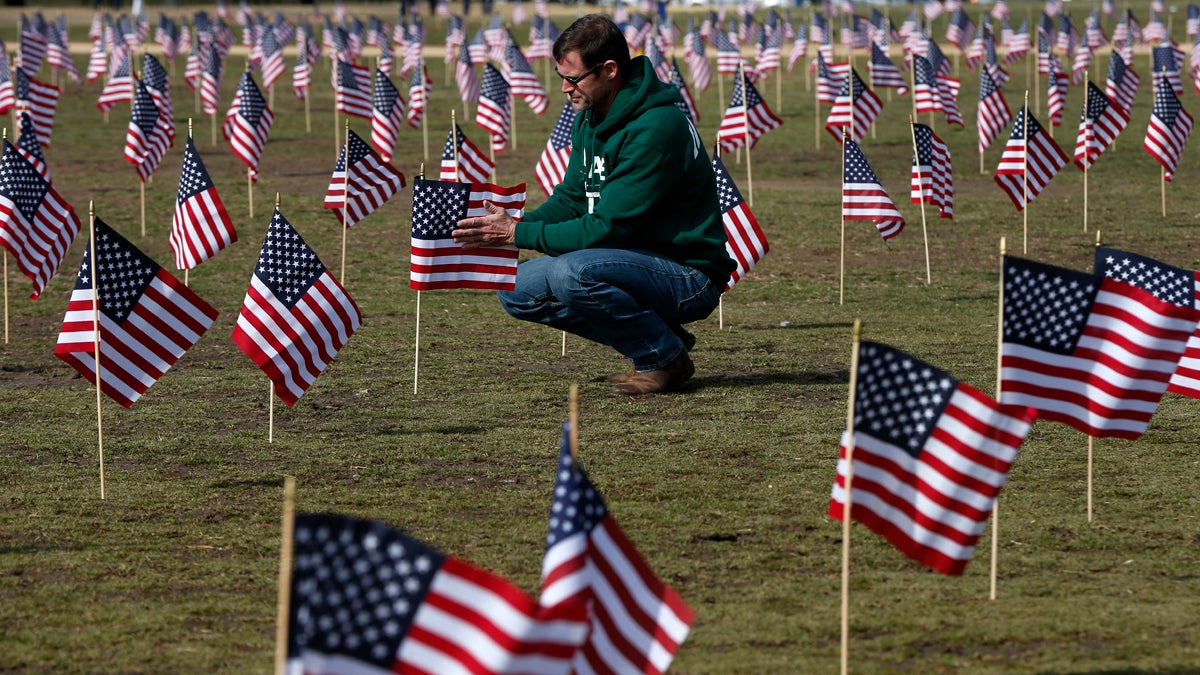Hospitals and nonprofits using N.J. funds to reach vets through peer coaches

Navy veteran Jeff Hensley of Dallas, Texas, now with Iraq and Afghanistan Veterans of America (IAVA), joins others in placing 1,892 flags representing veteran and service members who have died by suicide to date in 2014, Thursday, March 27, 2014, on the National Mall in Washington. The event also marked the introduction of The Suicide Prevention for America's Veterans Act by Sen. John Walsh, D-Mont., which calls for greater access to mental health care. (Charles Dharapak/AP Photo)
New Jersey health care providers and nonprofits are sharing more than $5 million in state grants to improve services to veterans.
Anthony Welch, the Policy Director at New Jersey’s Department of Health, says the grant money will support health care models that respond to the many challenges veterans face in their daily lives.
“There was a lot of at least anecdotal information that was strongly suggesting that veterans, particularly homeless veterans, are facing a variety of challenges that could be best addressed in a holistic fashion,” he said. “We structured this grant program so that we could attract providers who could help us look at this holistically, and provide primary care, behavioral health and social services in a coordinated, integrated fashion.”
The largest chunk, $5 million will go to large health care providers like Kennedy University Hospital, Cooper Health System and Rutgers University Behavioral Health care.
The money will support a peer-to-peer coaching program where veterans with special training help connect other vets to health services.
“Being able to work with somebody who’s kind of walked in your boots, who’s seen what you’ve seen and gone through some of the same experiences is really priceless,” said Russ Micoli, the Vice President of Ambulatory Services at Kennedy Health.
Kennedy applied for the grant on behalf of the Veteran Health Provider coalition — a coalition of seven health systems and a variety of partners in the South Jersey area.
“The world of healthcare can be overwhelming,” he added. “Having somebody who you can confide in, having someone who’s been through it, just lowers the whole anxiety level and makes it probably a little bit more serviceable.”
The coaches will receive training on diabetes prevention, mental health first aid and health care enrollment.
The rest of the grants, $500,000 will go to eleven smaller groups, such as The Veterans Foundation of America and Servicios Latinos de Burlington County. Some of those groups will hire wellness coaches, and others will provide translation services for veterans who don’t speak fluent English.
WHYY is your source for fact-based, in-depth journalism and information. As a nonprofit organization, we rely on financial support from readers like you. Please give today.

